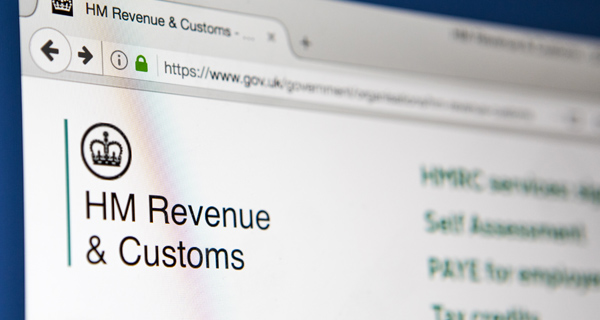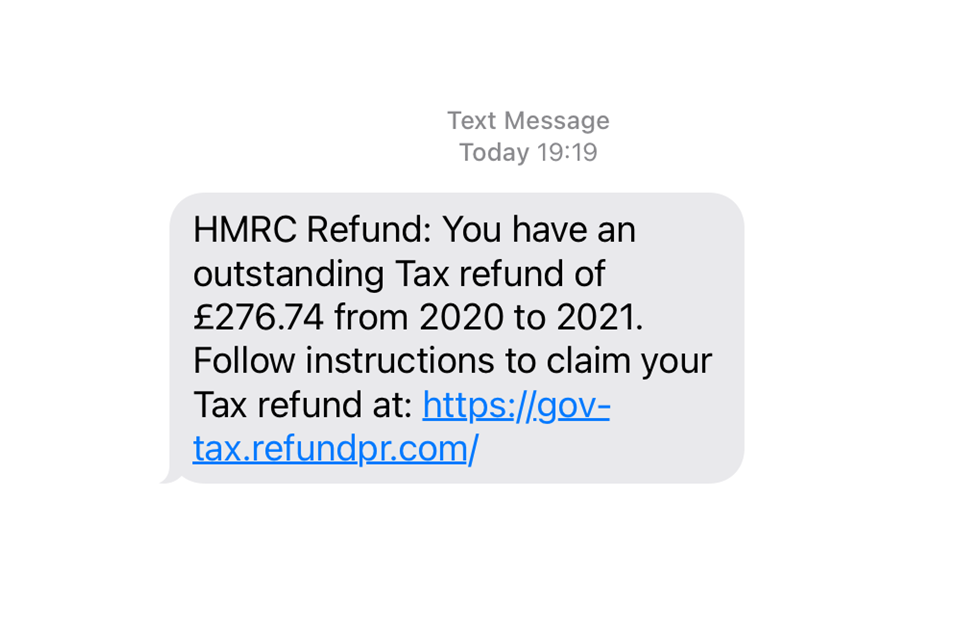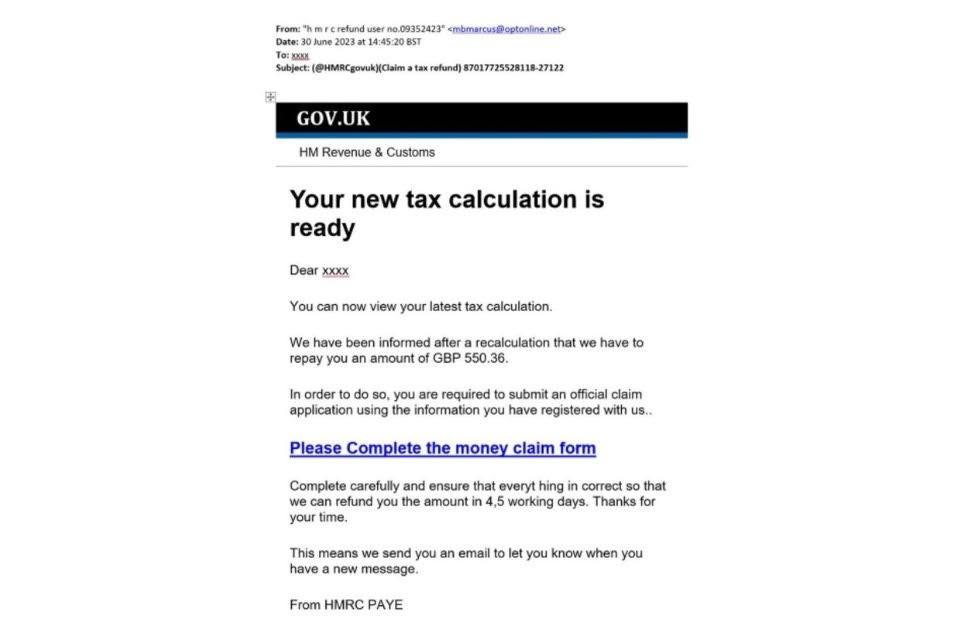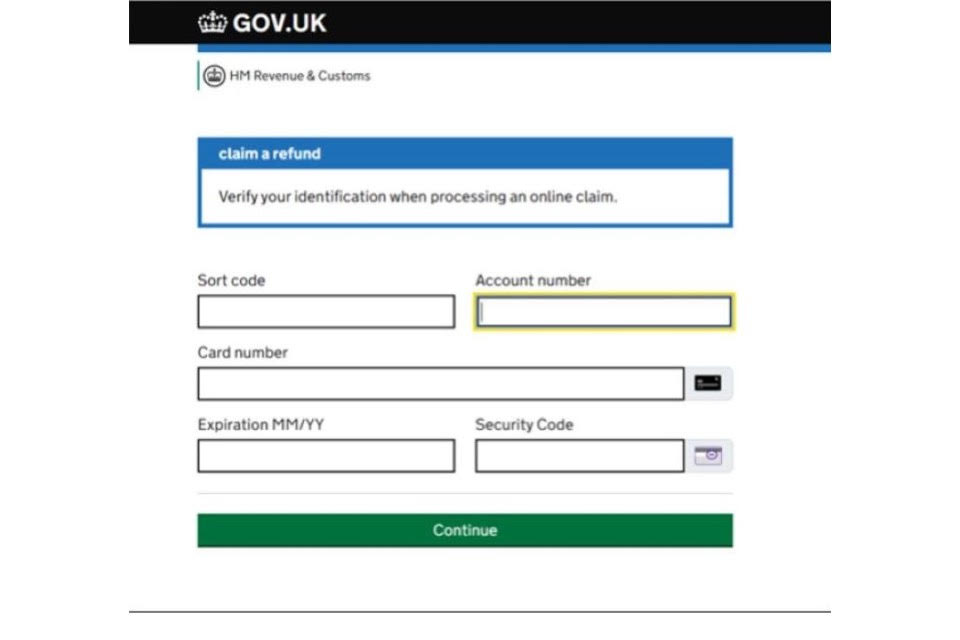North Wales Police Cybercrime unit warns of rising HMRC phishing scams

North Wales Police Cybercrime Unit has issued a warning about a recent surge in HMRC scam emails.
Over 700 cases have been reported to Action Fraud this month alone, indicating a significant increase in this particular type of phishing attack.
These scam emails, which falsely claim to be from Her Majesty’s Revenue and Customs (HMRC), typically inform recipients that they are owed a tax refund.
The enticing prospect of a refund often leads people to click on the included links, which direct them to convincing phishing websites designed to steal personal and financial information.
How the Scams Work
The phishing emails are crafted to resemble official communication from HMRC, complete with authentic-looking branding and language.
The message usually promises a tax refund or requires the recipient to verify their information, urging them to click on a link. Once clicked, victims are taken to a fake website that mirrors the HMRC site, where they are prompted to enter sensitive information such as their National Insurance number, bank details, and other personal data.
This information is then harvested by scammers for fraudulent activities.
An officer from the North Wales Police Cybercrime Unit explained the dangers: “These phishing websites are highly sophisticated and can appear very convincing. The goal is to make the recipient feel that the site is legitimate, encouraging them to provide their personal and financial information, which can then be used for identity theft or financial fraud.”
Rising Cases of HMRC Scams
While HMRC scams are not new, the recent spike in reports highlights the growing sophistication and frequency of these attacks.
The North Wales Police Cybercrime Unit emphasises that everyone should remain vigilant, especially as these scams often increase around tax deadlines and during times of financial uncertainty.
“Phishing scams can catch anyone off guard, especially when they promise something like a tax refund,” a representative from the unit said.
“The best defence is to be sceptical of unsolicited emails and to take steps to verify the source before clicking on any links or downloading attachments.”
How to Protect Yourself
To protect against HMRC phishing scams and other types of fraud, consider these steps:
- Be Wary of Unsolicited Emails: If you receive an email claiming to be from HMRC, be cautious, especially if it requests personal or financial information.
- Don’t Click Suspicious Links: Avoid clicking on links or downloading attachments in unsolicited emails.
- Verify the Source: If you are unsure about the legitimacy of an email, contact HMRC directly through official channels, not via any contact information provided in the suspicious email.
- Report Suspicious Emails: If you receive a suspicious email claiming to be from HMRC, forward it to [email protected] to report it.
- Educate Yourself About Scams: Familiarise yourself with common scams and learn to recognise warning signs. HMRC provides resources on its website to help identify genuine communications.
Steps to Take If You’ve Been Targeted
If you believe you have fallen victim to an HMRC phishing scam, it’s important to act quickly. Contact your bank immediately to secure your accounts and report the incident to Action Fraud, the UK’s national reporting centre for fraud and cybercrime.
Examples of HMRC related phishing emails, suspicious phone calls and texts
QR codes
HMRC uses QR codes in our letters and correspondence. The QR code will usually take you to guidance on GOV.UK. We will tell you if the QR code takes you anywhere else.
You will never be taken to a page where you have to input personal information.
When you are logged into your HMRC account, we may use QR codes to redirect you. For example, to take you to your bank’s login page.
If we’re using QR codes in communications you’ll be able to see them on the genuine HMRC contacts page.
To help fight phishing scams, send any suspicious emails containing QR codes to [email protected] then delete them.
Text messages
HMRC does send text messages to some of our customers.
In the text message we might include a link to GOV.UK information or to HMRC webchat.
HMRC will never ask for personal or financial information when we send text messages.
We advise you not to open any links or reply to a text message claiming to be from HMRC that offers you a tax refund in exchange for personal or financial details.
To help fight phishing scams, you should send any suspicious text messages to 60599 (network charges apply) or email [email protected] then delete them.

Image showing an example of a scam HMRC text message which is trying to get you to click on a hyperlink and enter personal details.
Coronavirus (COVID-19) scams
Text scams
‘COVID-19 refund’ SMS
Beware of various text scams offering an HMRC tax refund in connection with the COVID-19 pandemic.
Do not reply to the text and do not open any links in the message.
Tax refund and rebate scams
Emails
HMRC will never send notifications by email about tax rebates or refunds.
Do not:
- click on the links to visit a website mentioned in a ‘tax rebate’ email
- open any attachments
- disclose any personal or payment information
Fraudsters may spoof a genuine email address or change the ‘display name’ to make it appear genuine. If you are unsure, forward it to us and then delete it.
Example of a phishing email and misleading website

Image showing an example of a scam email with a hyperlink which directs you to a phishing website.

Image showing an example of a phishing website designed to trick you into disclosing personal information.
Suspicious phone calls
HMRC is aware of an automated phone call scam which will tell you HMRC is filing a lawsuit against you, and to press 1 to speak to a caseworker to make a payment. This is a scam and you should end the call immediately.
Other scam calls may refer to National Insurance number fraud or offer a tax refund and ask you to provide your bank or credit card information. If you cannot verify the identity of a caller, we recommend that you do not speak to them.
If you’ve been a victim of a scam and suffered financial loss, report it to Action Fraud.
Phishing calls use a variety of phone numbers. To help us investigate, share call details on our suspicious phone call reporting form. Include the:
- date of the call
- phone number used
- content of the call
WhatsApp messages
If you have subscribed to the UK Government channel on WhatsApp you will receive updates that might include occasional tax-related reminders. These will be single message alerts and you will not be able to reply.
HMRC will not communicate with you for any other reason using WhatsApp.
Social media scams
HMRC is aware of direct messages sent to customers through social media.
A recent scam was identified on X (formerly Twitter) offering a tax refund.
These messages are not from genuine HMRC social media accounts and are a scam. We never use social media to:
- offer a tax rebate
- request personal or financial information
If you cannot verify the identity of a social media account, send the details by email to: [email protected] and ignore it.
Refund companies
HMRC is aware of companies that send emails or texts offering to claim tax refunds or rebates on your behalf, usually for a fee. These companies are not connected with HMRC in any way.
You should read the ‘small print’ and disclaimers before using their services.
HMRC customs duty scams
HMRC is aware of a text and email scam where the customer is told they must pay customs duty to receive a valuable parcel which does not exist.
These scams should not be confused with changes introduced on 1 January 2021, advising that some UK consumers buying goods from EU businesses might need to pay customs charges when their goods are delivered. Find out more about these new rules on GOV.UK.
If in doubt, we advise you not to reply to anything suspicious, but to email HMRC at [email protected] straight away and read HMRC phishing and scams guidance.
Spotted something? Got a story? Send a Facebook Message | A direct message on Twitter | Email: [email protected] Latest News









